When it comes to SEO software, there are a lot of options out there. But don’t let that deter you—to find the right tool for your needs, all you need to do is evaluate what matters most to you.
What features and functions are most important to your business? Do you want something that provides insight into the data behind your keyword rankings? Or do you want something that will help you manage and optimize your site?
What kind of budget is available for this software? Does it have a free trial period so that you can try before buying?
Once you’ve got these answers, it’s time to start looking at what’s out there. We’ve compiled a list of our favorites below:
Recommended Seo Software
1. Ahrefs: SEO Keyword Tool
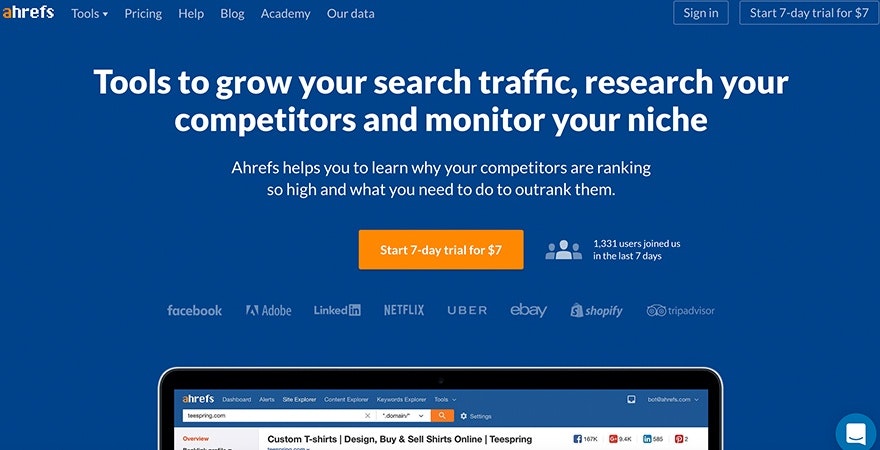
Ahrefs is one of the most recommended SEO tools online. It’s only second to Google when it comes to being the largest website crawlers. SEO experts can’t get enough of Ahrefs’ Site Audit feature as it’s the best SEO analysis tool around. The tool highlights what parts of your website need improvements to rank better in search engines. From a competitor analysis perspective, you’ll likely use Ahrefs to determine your competitor’s backlinks to use them as a starting point for your own brand. You can also use this SEO tool to find the most linked to content within your niche, check and fix broken links on your website,and get an overview of your best-performing pages (so you can see what information is drawing in the visitors).

Syed Irfan Ajmal, a Growth Marketing Manager at Ridester, loves the SEO keyword tool Ahrefs. He shares, “Ahrefs is surely our most favorite tool when it comes to various facets of SEO such as keyword research, rank tracking, competitor research, SEO audit, viral content research and much more. We add our site and those of our competitors to it. The tool then shows us the sites which have backlinked to our competitors but not us. This helps us find great link opportunities. But this wouldn’t have been so easy if Ahrefs didn’t have the largest database of backlinks. Ahrefs has been instrumental in getting our site ranked for several major keywords, and getting us to 350,000 visitors per month.”
2. Google Search Console: Top SEO Tool
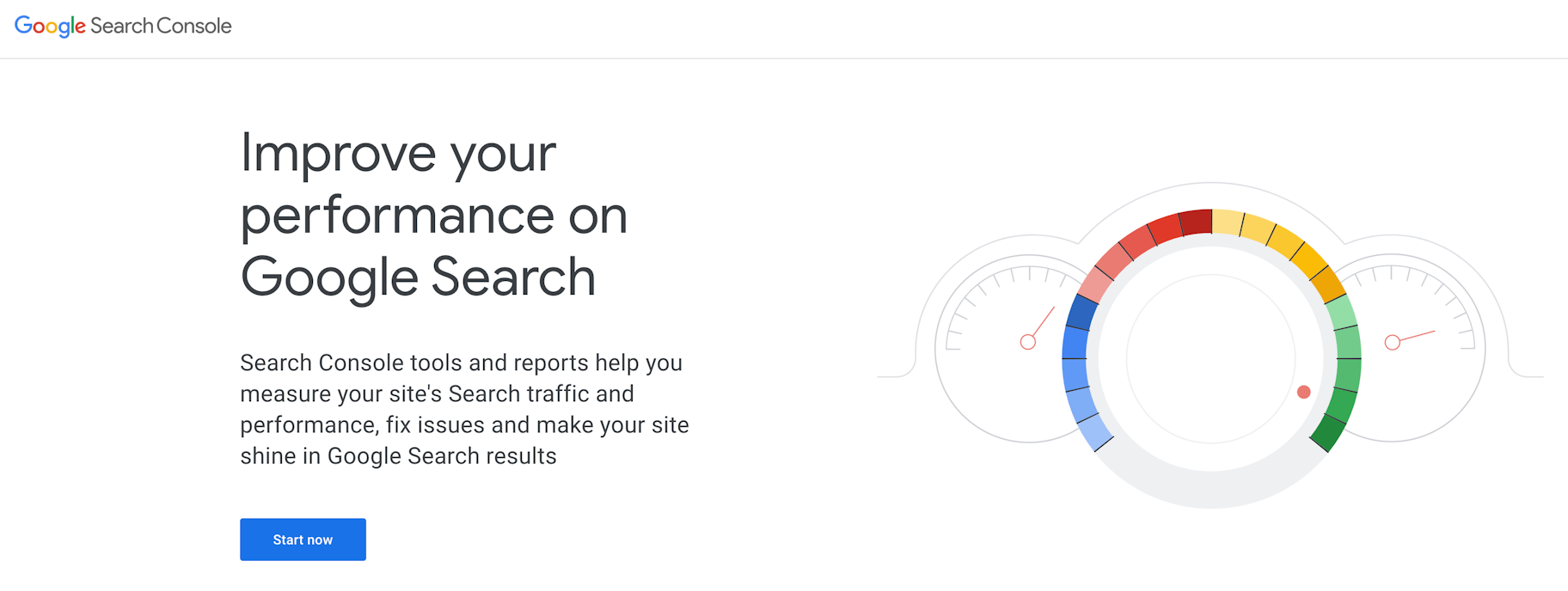
Offered for free to everyone with a website, Google Search Console lets you monitor and report on your website’s presence in Google SERP. All you need to do is verify your website by adding a code to your website or going through Google Analytics and you can submit your sitemap for indexing. Although you don’t need a Search Console account to appear in Google’s search results, you can control what gets indexed and how your website is represented with this account. As an SEO checker tool, Search Console can help you understand how Google and its users view your website and allow you to optimize for better performance in Google search results. It’s especially useful for new websites as it lets site owners submit web pages for search indexing.
3. SEMRush: Marketing SEO Tools
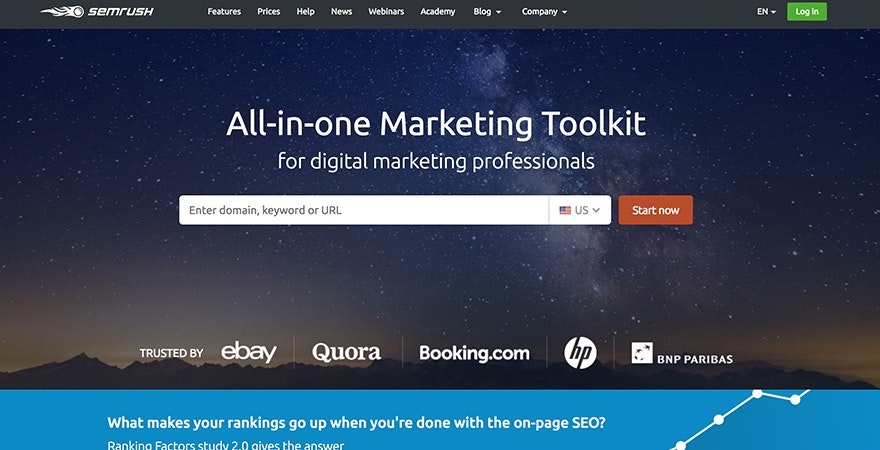
Marketing SEO tools like SEMRush tend to be fan favorites in the SEO community. Experts love that they let you easily assess your rankings as well as identify changes and new ranking opportunities. One of the most popular features of this SEO tool is the Domain Vs Domain analysis, which allows you to easily compare your website to your competitors. If you’re looking for analytics reports to help you better understand your website’s search data, traffic, or even your competitors, you’ll be able to compare keywords and domains. The On-Page SEO Checker tool allows you to easily monitor your rankings and find some recommendations on how to improve your website’s performance.

Liraz Postan, Senior SEO & Content Manager at Outbrain, recommends SEMRush as one of the best SEO tools. She says, “My favorite SEO tool is SEMrush with the feature of “organic traffic insights”. This feature lets me see all my leading articles with one dashboard, along with related keywords, social shares and word count. This gives me a quick overview of what’s working and where to optimize. I generally use SEMrush on my daily work, love this tool, and love using its site audit to optimize our site health. We improved our site health by 100% more since we started using SEMrush, and we increased conversions by 15% more from our content pages.”
4. KWFinder: SEO Keyword Tool
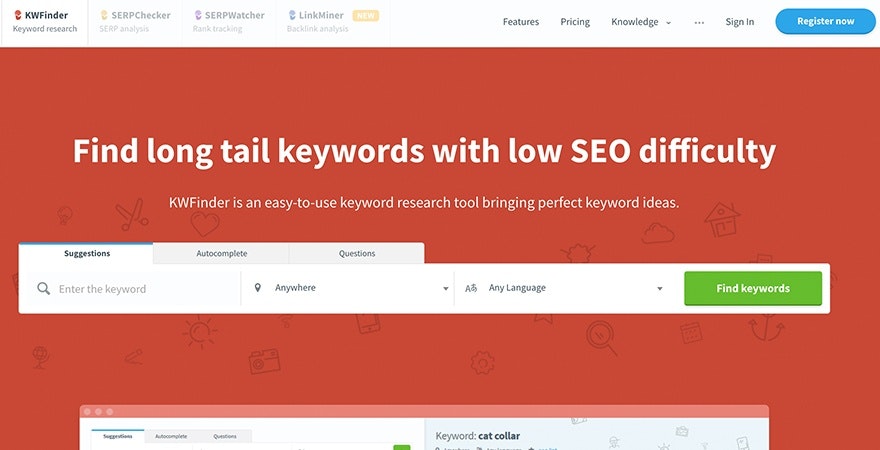
An SEO keyword tool like KWFinder helps you find long-tail keywords that have a lower level of competition. The experts use this SEO tool to find the best keywords and run analysis reports on backlinks and SERP (Search Engine Results Page). Their Rank Tracker tool helps you easily determine your ranking while tracking your improvement based on one key metric. Plus, if that’s not enough, you’ll get a ton of new keyword ideas to help you rank your website even higher.
 George Perry, an SEM Specialist at Bandwidth, raves about KWFinder. “I like that not only does it show me information on the keyword that I was searching for, but pulls in good suggestions for related terms, and how they compare (volume, CPC, difficulty, etc.) to the term I originally looked at. I’ve been able to help my clients target not only those big, pie in the sky vanity terms, but to better target those terms that are lower in the funnel and more likely to convert, allowing me to target them through focused content that answers the questions they’re actually asking.”
George Perry, an SEM Specialist at Bandwidth, raves about KWFinder. “I like that not only does it show me information on the keyword that I was searching for, but pulls in good suggestions for related terms, and how they compare (volume, CPC, difficulty, etc.) to the term I originally looked at. I’ve been able to help my clients target not only those big, pie in the sky vanity terms, but to better target those terms that are lower in the funnel and more likely to convert, allowing me to target them through focused content that answers the questions they’re actually asking.”
5. Moz Pro: SEO Software
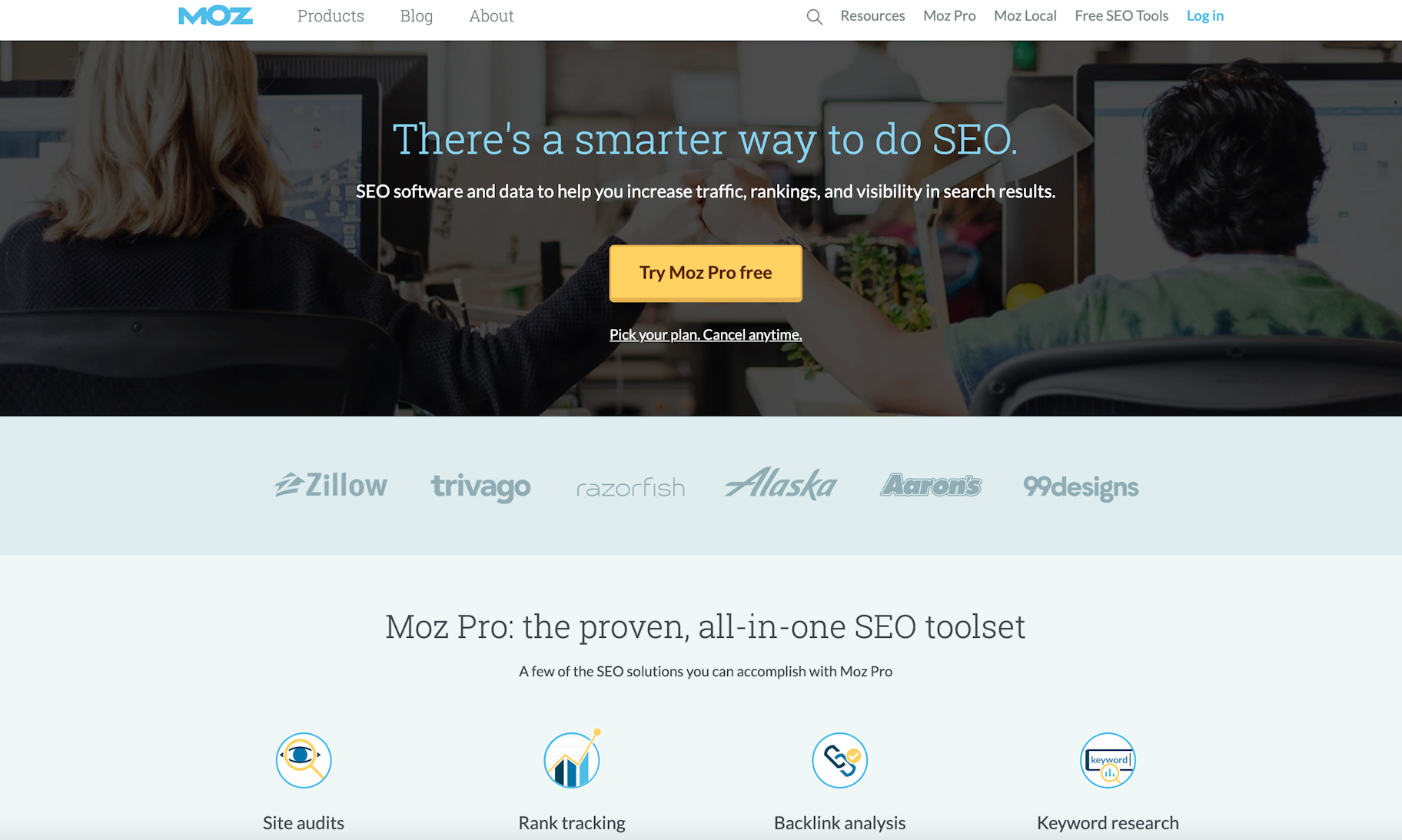
SEO software Moz Pro keeps popping up as one of the best SEO tools that experts actually use. Some specialists raved about how Moz was always up to date despite Google’s regular algorithm changes. Others praised Moz’s chat portal that allows them always to get an insightful response to every question asked. Whether you’re looking for keyword recommendations or a site crawl, Moz is a full-service powerhouse. You can get great insights into how your website is performing but also how to improve it. They also have a free MozBar toolbar that you can download to see your website’s metrics while browsing any page. If you’re looking to learn more about SEO, you should also consider checking out MozCon, their annual conference.

Keri Lindenmuth’s, Marketing Manager at Kyle David Group, go-to SEO tool is none other than Moz Pro. She says, “My favorite feature of the tool is its ‘page optimization feature.’ It tells you exactly what steps you can take to improve the SEO of every single page on your website. For example, it will tell you to ‘Include your keyword in this page title’ or ‘Add an image with a keyword alt tag.’ This tool has substantially improved our client’s business simply by the fact that it gives increased transparency. We can compare their site’s traffic and optimization to that of their competitors. We can see which pages and search terms their competitors perform well in and alter our web practices to compete against theirs. Without a tool like Moz, SEO really becomes a guessing game. You have no idea where you’re doing well and where you can use improvement.”
6. Ubersuggest: Keyword Tracking Tool
Ubersuggest, developed by Neil Patel, is a free keyword finder tool that helps you identify keywords and also the search intent behind them by showing the top ranking SERPsFrom short to long-tail phrases, you can find the right terms to use on your website with hundreds of suggestions from this free great keyword tool. Metrics Ubersuggest includes in its reports are keyword volume, competition, CPC, and seasonal trends. Great for both organic SEO and paid PPC, this tool can help you determine if a keyword is worth targeting and how competitive it is.
7. Answer The Public: Free SEO Tools

Free SEO tools like Answer The Public allow you to easily find topics to write about for your blog. I’ve used this tool in the past to create content around specific keywords to better rank online. Say you’re in the ‘fitness’ niche. You can use this free SEO tool to create content around keywords like fitness, yoga, running, Crossfit, exercise and cover the entire spectrum. It’s great for finding featured snippet opportunities. Say you hire a freelancer to create content for you, all you need to do is download this list and send it over to them. And it would only take you five minutes, making it one of the most efficient ways to come up with SEO topics for new websites.

Matt Jackson, Head of Content at Wild Shark, loves free SEO tools like AnswerThePublic. He shares, “One of my favorite tools when compiling SEO content for a site is AnswerThePublic.com. The best feature of the tool is that it presents a list of the questions that web users are asking about a particular keyword. If I’m running out of genuinely useful content ideas, or if I’m compiling an FAQ page, it provides invaluable guidance as to what, exactly, people are searching for. It is not only useful for SEO content, it means that our clients can answer questions on their site, minimizing the number of customer service calls they receive and giving greater authority to a page and the overall business. And here’s a quick tip: prevent neckache by hitting the Data button, rather than straining to read the question wheel.”
8. SpyFu: Free SEO Tools

While SpyFu has an amazing premium version, many of our experts raved about its free features. If you’re just starting out, you can easily grow into the paid features as you start succeeding. You can easily view the number of times a keyword gets searched each month while easily determining the ranking difficulty for that keyword. You can also do some research on your competitors to determine which keywords they use. Additionally, you can search your competitor’s, or your own, website to easily see how many organic keywords they have, how many monthly clicks they get, who their paid and organic competitors are, the campaigns they’re running with Google Ads, and more. It’s one of the most detailed SEO analysis tools on the market.

Adele Stewart, Senior Project Manager at Sparq Designs, can’t get enough of SEO software SpyFu. She shares, “I have used SEMrush and Agency Analytics in the past, but SpyFu has the one-up on my client’s competitors. All of SpyFu’s features are great, but my absolute favorite is the SEO Research feature. You’re able to plug in a competitor’s domain and pull up information on their own SEO strategy. You can see what keywords they pay for vs. their organic standings, review their core keywords, and even assess their keyword groups. Using SpyFu has been integral to my client’s SEO successes. There’s so much more to track and report on, plus I don’t have to put in as much effort in research as I did with other SEO software. SpyFu pulls the information I need and organizes reports in a way that is presentable and understandable to my clients. I’ve already seen increases in indexing and rank for keywords that we didn’t even think of.”
9. Woorank: SEO Ranking Tool
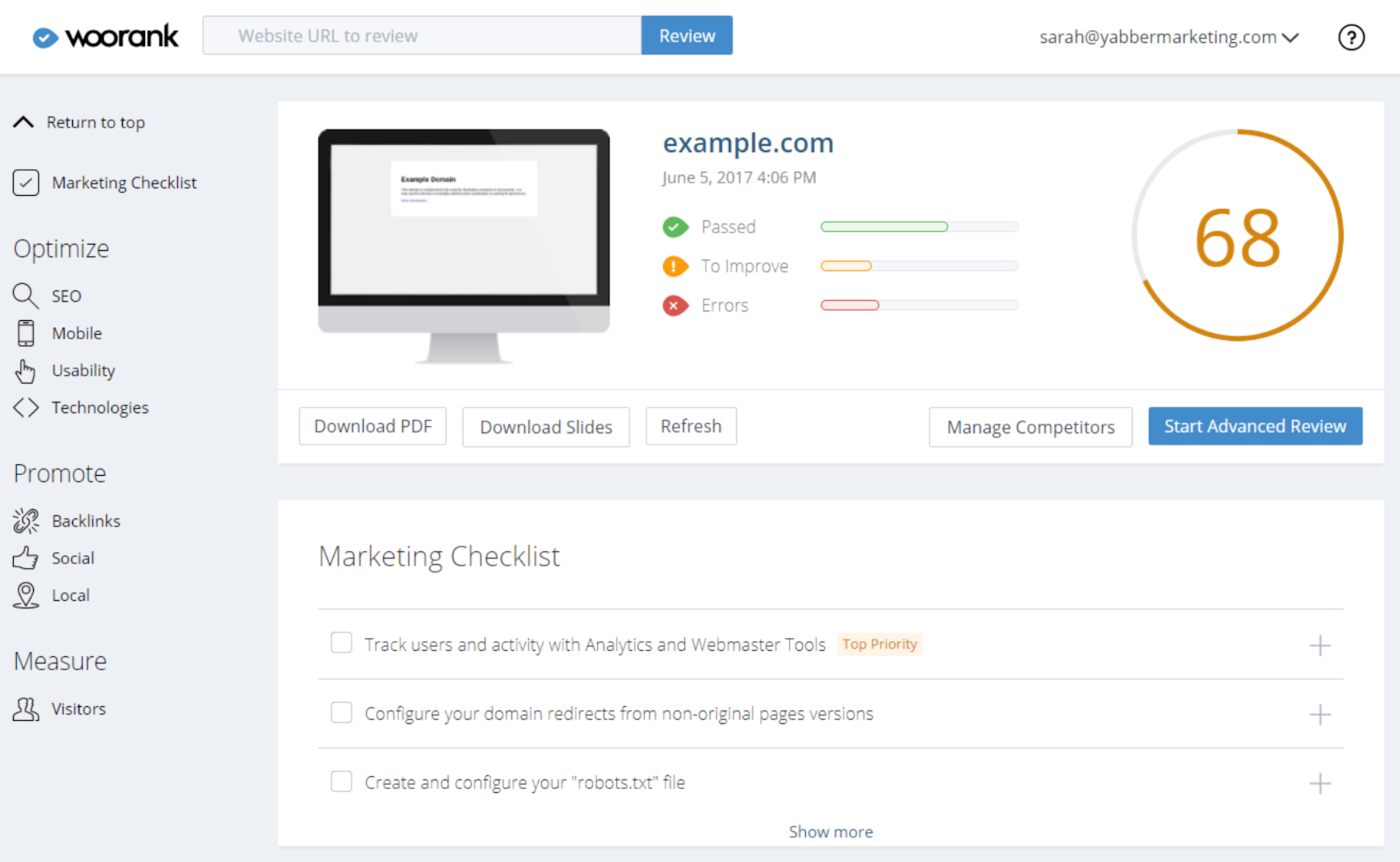
As a top SEO analysis tool, Woorank offers free and paid options to track and report your marketing data. You can plug in your competitors to discover which keywords they are targeting so you can overlap with theirs. Try understanding how keywords perform over time to optimize for users and search engines in the best way possible. And most importantly, understand the things your website is lacking from both a technical and content perspective. Woorank can help you identify duplicate content, downtime, and security issues and provide guidelines on how to fix them.
10. Majestic: Marketing SEO Tools

Majestic is one of the best marketing SEO tools according to experts. It has countless useful features like The Majestic Million which lets you see the ranking of the top million websites. Did your website make the cut? The Site Explorer feature allows you to easily see a general overview of your site and the number of backlinks you have. It also works as an SEO keyword tool to find the best keywords to target while also having features geared to site comparisons and tracking your rank.

Ryan Scollon, SEO Consultant at RyanScollon.co.uk recommends the SEO tool Majestic. He says, “My favorite SEO tool is Majestic, with its main feature allowing you to check the backlinks of a website that you specify. My favorite feature is the ability to add your own client’s site and a bunch of competitors, allowing you to easily compare a variety of SEO metrics such as trust flow, referring domain count, and external backlinks count. Not only does it help us understand the [client’s optimization] weaknesses, but it also provides a simple table that we share with our clients, so they too can understand the problems and how they stack up to their competitors. We also use Majestic to audit competitors’ backlinks, as we can sometimes find a handful of easy opportunities to tackle before moving onto other link building tactics.”
google seo tools
oogle offers a constantly updated suite of tools that are useful for SEO.
These tools help publishers understand why a page is underperforming and guide them with specific advice for improving webpage performance for the purpose of ranking better.
Here are Google’s top five SEO tools.
- Lighthouse
Lighthouse is a web page performance improvement tool that is built into every browser that is based on Chrome. The tool is accessible within the Chrome Dev Tools panel.
Multiple Ways to Access the Google Lighthouse Tool
On a Windows machine, press the F12 function button.
On Windows or Mac right-click the page and choose “Inspect” then choose the “Lighthouse” tab.
On Mac press: Command+Option+C
On Windows, Linux, and Chrome OS press: Control+Shift+C
In Chrome, click the 3-dot menu on the top right corner then, More Tools > Developer Tools
Step by Step of How to access Google Lighthouse on Chrome browser.Screenshot from Google Search, August 2021
Screenshot of Lighthouse within the Chrome Dev Tools panel.Screenshot from Chrome Dev Tools, August 2021
Lighthouse Offers 5 Feedback Categories
It currently provides five categories of SEO performance feedback:
Move Your Business Forward With Content Marketing
Enhance your online visibility, reach new customers, and drive sales with this all-in-one content marketing toolkit.
Try It Free
ADVERTISEMENT
Performance.
Progressive Web App.
Best Practices.
Accessibility.
SEO.
While accessibility isn’t strictly an SEO-related metric, it is related to good user experience for disabled site visitors.
Using the feedback from these five categories will help improve the search visibility of most webpages.
The SEO section of Lighthouse provides 10 points of feedback on factors that matter for Google.
Some Metrics Chrome Lighthouse Reports On
Viewport Meta Tag.
Title Element.
Meta Description.
HTTP Status Code.
Descriptive Text on Links.
Page Status for Successful Crawling & Indexing.
Validates Hreflang.
Validates rel=canonical.
Checks mobile-friendliness.
Validates font legibility for mobile devices.
Checks mobile tap targets.
Checks if document avoids browser plugins for viewing.
Checks crawling and indexing.
Checks the Robots.txt.
Checks if the page sends a successful HTTP status code.
Why You Should Use Lighthouse SEO Tool
I won’t deny it, Lighthouse is a lightweight site review tool.
But it’s an important site review tool because it represents Google’s opinion of 10 metrics you should be looking at.
If Google feels that these metrics are important, then you should, too.
To make the most of this tool, be sure to check out A Technical SEO Guide to Lighthouse Performance Metrics.
- Test My Site
Google’s Test My Site auditing tool offers two metrics:
Estimated loading time on a 4G mobile network.
Recommendations for speeding up the website.
Google Mobile Speed Test Recommendation.Screenshot of Test My Site, August 2021
This is a good tool for obtaining a quick snapshot of the speed health of a website.
It’s a good starting point for obtaining an overall picture of mobile optimization.
The tool also offers to email a full report containing suggestions for speeding up the tested webpage.
Why You Should Use Test My Site
You can obtain similar information by using Page Speed Insights.
But the Test My Site tool provides the information in an easy-to-understand manner that’s easy for non-developer stakeholders to gain an understanding of what may be wrong with the mobile site performance.
Yet it’s also good for developers to get a quick overview, as well.
If you want granular details about what needs fixing, then head over to Google’s Page Speed Insights.
- Page Speed Insights
Page Speed Insights is the tool that provides lab Core Web Vitals performance scores.
Core Web Vitals are important metrics created by Google to represent what a user experience on a webpage is.
This information is important because fixing the highlighted problems will improve SEO, sales conversions, ad clicks, and (if successful in fixing performance bottlenecks) give a small ranking factor boost.
This online tool provides specifics on what is causing the slowdown and gives suggestions for how to fix the problems.
It tells which scripts and style sheets are slowing down the site, which images are too big, and offers numerous other tips for speeding up affected webpages.
Why You Should Use Page Speed Insights
Page Speed Insights not only offers useful solutions for hidden technical issues impacting page speed, but it is also a resource for learning what those issues are.
Each highlighted issue links to a Google Developers page that offers more in-depth background information and an explainer of how to fix the problems.
- Safe Browsing Test
Google crawls billions of pages every day to check for malware. This tool reports if there is any malware on a site.
The tool also provides the date for the last time the site was checked for malware.
Some sites are tested more often than others.
Why You Should Use the Safe Browsing Test Tool
Many people do not consider website security an SEO problem.
But website security quickly becomes an SEO issue when Google starts dropping URLs from its index because the site is hacked.
That’s why website security should be considered a part of SEO. Failure to secure a site can severely affect search visibility.
- Google Trends
Google Trends provides information about keyword popularity and also segments the information by time and geography.
The time segment can give you an idea of how seasons may affect keywords. It can also show you if a keyword is losing popularity.
If you see a downward trend in a keyword, this could indicate that a product or trend is causing searchers to lose interest in that search.
Why You Should Use Google Trends
Google Trends is also important for competitive research. It shows you how often people are searching Google with a competitor’s brand name.
The trend line by time will show you how steady this trend is – if it’s going up, down, or steady.
Obviously, a competitor trend line that is trending down is good. A trend line that is trending up is bad.
A trend line that is steady (the most common) means a competitor is doing well and you’ll have to identify their weaknesses and make those your strengths – among many considerations.
Conclusion
Let us know your thoughts in the comment section below.
Check out other publications to gain access to more digital resources if you are just starting out with Flux Resource.
Also contact us today to optimize your business(s)/Brand(s) for Search Engines
